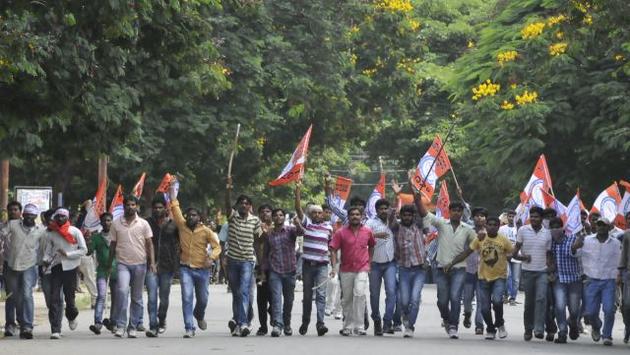
Hyderabad, September 30: A confrontation between students of Osmania University and the police on Sunday morning raised tension levels in the State capital, which is all set to witness the Telangana March called by Telangana Joint Action Committee and supported by various parties and organisations to press for bifurcation of the state.
Tension gripped the sunny Sunday morning in Hyderabad as groups of students attempted to break through a cordon of police personnel in riot gear arguing that they wanted to join the Telangana March on Necklace Road. The police however refused to allow them to leave the campus, leading to stone pelting by students and retaliatory lobbing of tear gas shells by the police. As news of the clash spread, atmosphere in other parts of the city also charged up.
A group of elected representatives including MPs and MLCs of the ruling party rushed to the Chief Minister’s camp office in Begumpet to “protest” against police action. As surprised police contingents moved into the high security zone to cordon off the Chief Minister’s camp office, MPs began shouting at them demanding that they be taken to Chief Minister N. Kiran Kumar Reddy. The protestors were later taken into preventive custody.
Meanwhile, the Ganesh idol immersion which was to expected to be completed by Sunday morning, was still continuing on Tank Bund and NTR Marg side of the Necklace Road. The Telangana March is to take place between 3 p.m. and 7 p.m. on Sanjeevaiah Park side. People from Secunderabad have arrived at the march site.
Security has been stepped up across the city, near buildings and business centres and on the outskirts, in the wake of the burning of a toll plaza on the Outer Ring Road allegedly by the activists of the Telangana United Front (TUF) two days ago.
Anticipating trouble, the South Central Railway has cancelled more than a dozen express trains and 25 passenger trains either originating or passing through Hyderabad on Sunday. All local and MMTS trains have also been cancelled.





Comments
Add new comment